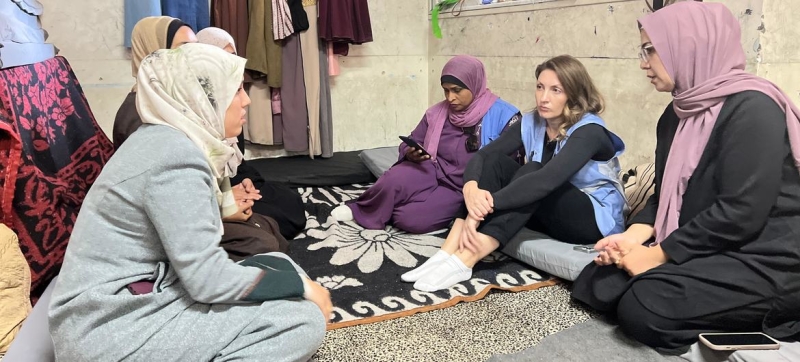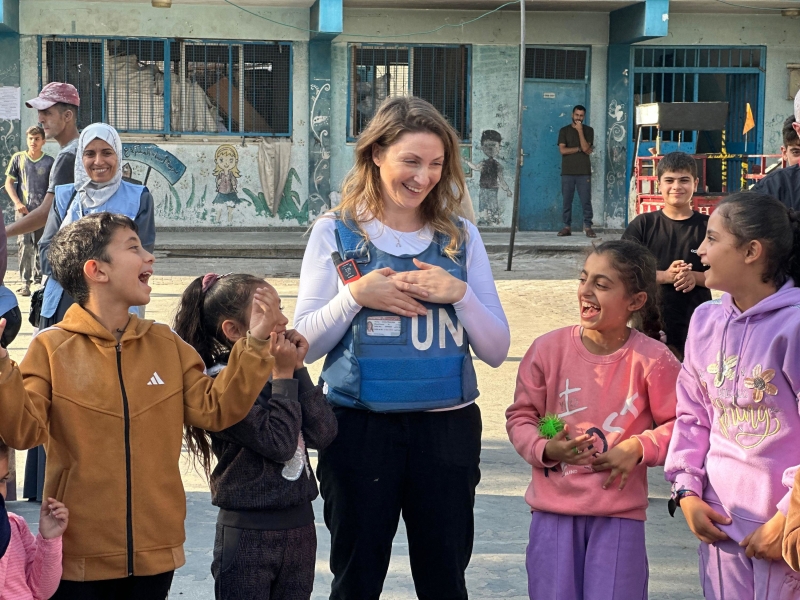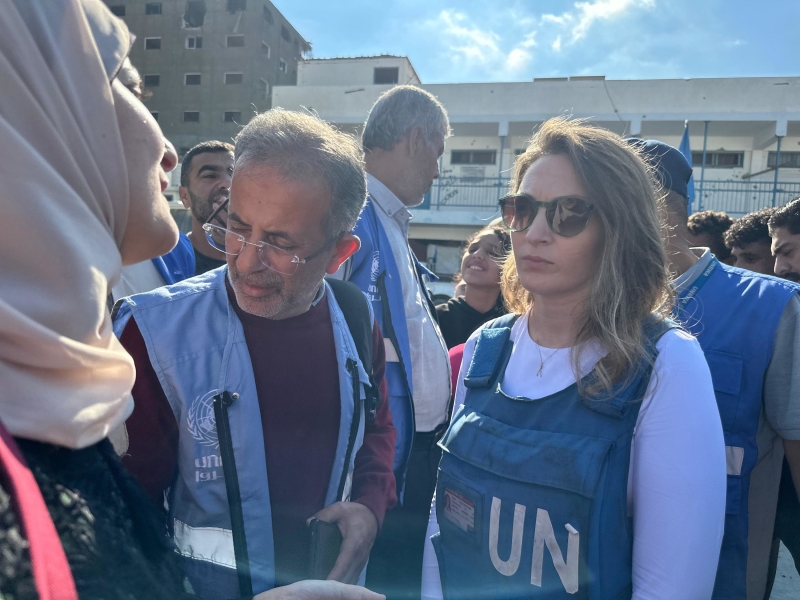
UNRWA’s Louise Wateridge in Gaza. UN News Hero: ‘The World Is Tired of Watching People Die in Gaza?’ Peace & Security
At the end of a year marred by wars and humanitarian crises, UN News is giving a voice to the people on the ground without whom we could not cover the work of the UN as fully as we can. Our first hero is Louise Wateridge of the UN Refugee Agency (UNRWA). Her reports from Gaza reveal the scale of the crisis and the importance of UN humanitarian operations for millions of people.
My colleagues – my friends – that’s why I’m here.
My story will certainly be an expression of respect for them and for Gaza, which I’ve had the honor of meeting. Those who know Gaza will understand what I mean. The Gaza that existed before… before the unimaginable destruction that now eclipses the memories of the Gaza of old.
Remember my son…
The first few months of this brutal war were filled with emotional voicemails from friends saying goodbye, thinking they wouldn’t survive the night. Desperate texts were followed by excruciating silence. Mona’s words still haunt me: “If we never meet again, remember me. Remember my son.” People struggled to survive, cut off not only from each other and their families, but also from the outside world, which was following events on the news and social media.

Louise Waterridge with children in Gaza.
Mohammed’s daughter, Sama, was born on October 31, 2023, in Gaza. Ambulance services were overwhelmed by the bombings, and he was forced to drive his wife to the hospital himself, trying not to get hit. Death was everywhere in the hospital where she gave birth.
A few weeks later, as my colleague and his family were trying to leave Gaza, Israeli soldiers shot and killed his four-year-old daughter, Salma. She died in his arms on the street from a neck wound. The pain was forever etched on his face.
He was burying dead children in his yard
Earlier this year, we lost contact with Hussein for a week while the UN facility where his family was taking refuge was besieged, surrounded by tanks, and more than 40,000 people were trapped inside. His last message was one of despair: “They are shooting at us right in our yard.” Ambulances and emergency services were not allowed to reach the people. When we finally managed to contact him, he was burying the bodies of the dead, including children, in his yard.
Some of the most striking images of this war were captured by my colleague Abdallah. In February, Abdallah was hit while documenting events in northern Gaza. On a Saturday afternoon, we were told he had been killed. I remember literally taking my breath away. On Monday, someone found Abdallah in hospital, alive but with his legs amputated. Soon after, we lost contact with him for 14 long days as doctors fought to save his life in Al-Shifa Hospital, which was under Israeli siege. Miraculously, after four attempts, the UN was able to evacuate him.
And then came April. I was finally allowed into Gaza for the first time since the war began. My first stop was the field hospital in Rafah where Abdullah was barely alive. It was a tent pitched on the sand. The doctors told me he had days to live as they didn’t have the equipment or medicine he needed. Two of my colleagues with matching blood types donated blood on the spot to keep him alive. Two long months after he was wounded, Abdullah was approved for medical evacuation just days before the Rafah crossing was finally closed. It’s still hard to believe he survived.
In May, everything fell apart before our eyes. The joy of being together again and the relief that Abdullah was safe were short-lived as the military invasion began in Rafah. It was chaos, panic and horror. I was shocked to see with my own eyes how over a million people were forcibly displaced in just a few days. One of the first people I knew to leave Rafah was Jamal. He followed the instructions on the forced evacuation notices dropped from the sky and moved his family to Deir el-Balah. That same night, he was killed by an Israeli strike while he and his family were sleeping.
The World Is Still Watching?
One of the last people he knew to leave Rafah was Mohammed. He was overcome by fear, which prevented him from assessing the situation. In every tense look and conversation you could hear: “but where do we go?”. Mohammed stayed until that night – the night when a beheaded child was carried out of a burning tent after an Israeli strike. The footage flew around the world. But no one seemed to understand that such things happen every night… However, these horrors do not always make it into the world media, remaining only in people’s nightmares. The voices of children screaming for help have haunted Mohammed every night since then.
If you’ve read this far, you understand why I’m here in Gaza. You understand why my life has been put on hold so I can spend time with my friends and tell the world about the ongoing nightmare they’re living. About families screaming in desperation for news of their loved ones who’ve been held captive for months. About bodies left to be eaten by packs of dogs around checkpoints. About babies in hospitals who’ve lost limbs after strikes in “humanitarian zones.” Mona’s brother, killed. Hussein’s daughter, killed. Raj’s cousin, killed. You keep track of the deaths? Because we don’t. Here, you’re lucky to even know whether your loved ones are alive or not.

Louise Waterridge with displaced families in Gaza.
Journalists on the ground risk their lives every day to tell stories of friends, families and neighbours caught up in the unspeakable horrors of war: children losing loved ones, homes destroyed and pain that lingers forever. The world is still watching? Outside of Gaza, people are tired of hearing about children killed in every possible way: killed by strikes, buried under rubble, starved to death, killed when electricity in incubators was cut off, killed simply for existing? An entire society has been turned into a graveyard, but no one has the luxury of mourning because they have to survive. Food, water, medical care, safety – how is it possible that we are ending another year and such basic needs remain unavailable? 100 hostages are still in Gaza, their families desperately waiting for their return and news of their fate. More than two million people are trapped. They cannot get out. There is no way out.
Personally, I will never forget how we sang “Happy Birthday” to little Samey when she turned one – all together we decided that we should shout down the bombs falling around us, shaking the earth. Her life was forever changed and consumed by the horrors of war.
